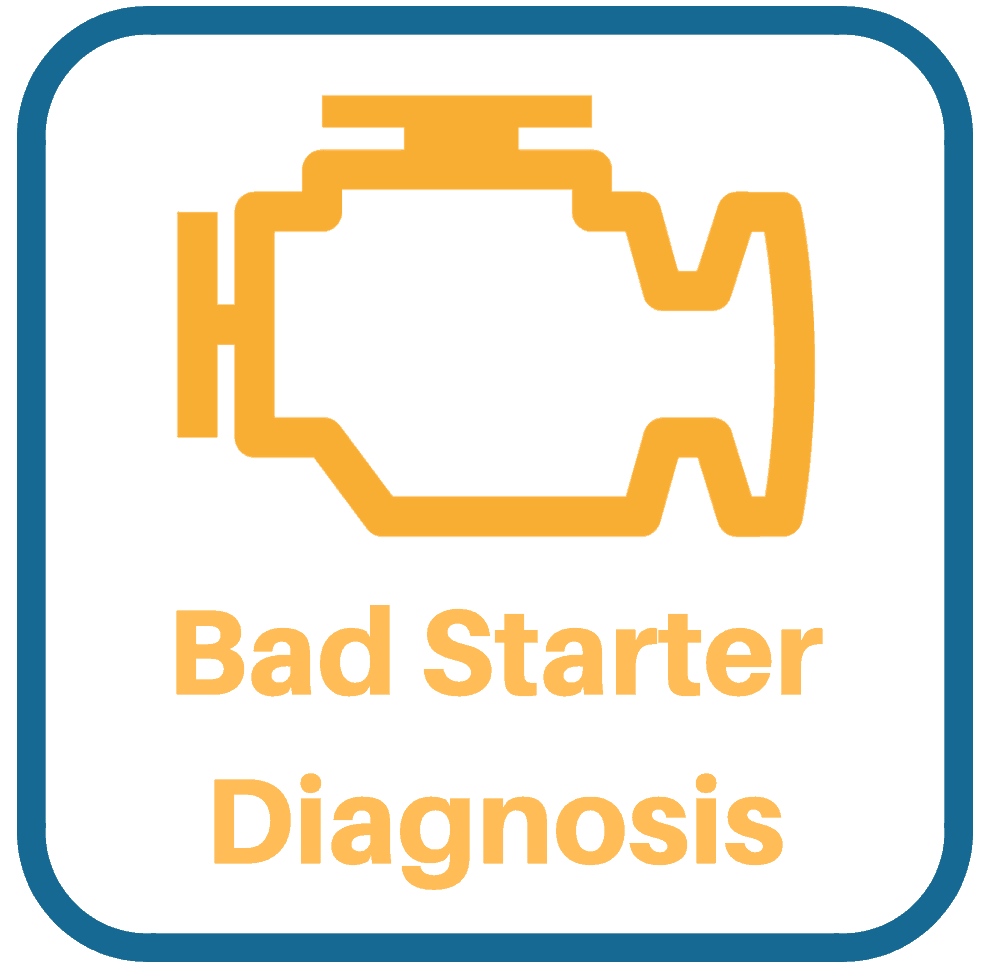One of the most common problems that can occur in the life of a vehicle is a bad starter, that includes the Chevy Sonic. It is important to determine whether or not it’s a bad starter that is keeping the vehicle from turning over.
If your Sonic is not starting, don’t assume right away that the starter is bad immediately. There are other issues that can keep it from turning over. These include a bad battery, battery cables, or a neutral safety switch issue. Starters are not expensive, but replacing them can be tricky.
Bad Starter Symptoms: Chevy Sonic
Noises coming from the starter and the vehicle itself not starting are the most common symptoms of a bad starter in your Sonic.
1. Noises
Your ears are the best diagnostic tool that you have. You can tell a lot about what’s going on with a vehicle by carefully listening for changes. A bad starter will often click, but not engage the flywheel/flexplate. It can also make a grinding sound.
If you hear a high pitched whirring sound, it may indicate that your Sonic’s starter is bad, or it could mean that the starter is turning, but not making contact with the flywheel. This is often caused by starter bolts that were not torqued tightly enough, or a broken flex plate/flywheel tooth.
2. Won’t Start
If your Sonic won’t start that can be a very strong indication of a bad starter. The thing is, it can also indicate other problems as well. You don’t want to go through all of the trouble involved in replacing your starter only to discover that it wasn’t bad at all.
Common other reasons your Sonic won’t start include:
- Bad Battery Cables or Terminals– Throughout your Sonic’s life, the battery cables and terminals can become corroded. This corrosion keeps the proper voltage from getting to the starter. If the dash lights dim or turn off entirely when trying to start your Sonic, that can indicate the battery or cables.
- Bad Battery– A battery that is too depleted won’t start your engine. If the starter is turning slowly, but not fast enough for your Sonic to start, it could very likely be a bad battery that is at fault (as opposed to a bad starter).
If you aren’t sure if it’s the starter or not, here’s a whole article on diagnosing why your Sonic won’t start.
3. Smoke
Smoke coming from under the hood is a good indication that the starter has given up the ghost. It can burn up, or the wiring associated with it can burn up. If you see smoke, stop cranking! Make sure your Sonic isn’t on fire and have a mechanic take a look.
Bad Starter Diagnosis: Chevy Sonic
You’ll want to take a look at your Sonic’s battery cables and battery posts. If they are corroded, you’ll need a good wire brush or terminal cleaner to them cleaned up.
Look at the wire going directly from the battery to the starter. Check to see if it is burnt, or if it has taken any sort of damage that could keep it from properly conducting electricity.
If everything looks good with the battery cables and terminals, move on to the neutral safety switch. Try putting your Sonic in neutral and starting the engine. If it starts, that could indicate a bad neutral safety switch, and not a bad starter.
If the neutral safety switch trick doesn’t work, take a look at the battery and make sure that it doesn’t look visibly damaged. It may be worth your time to take it and have it tested at the local auto parts store (this is usually a complimentary service) before pulling and replacing the starter itself.
Conclusion
Good luck diagnosing whether or not your Chevy Sonic has a bad starter. If there is anything that you would like to add, please leave a comment below. Thank you.


